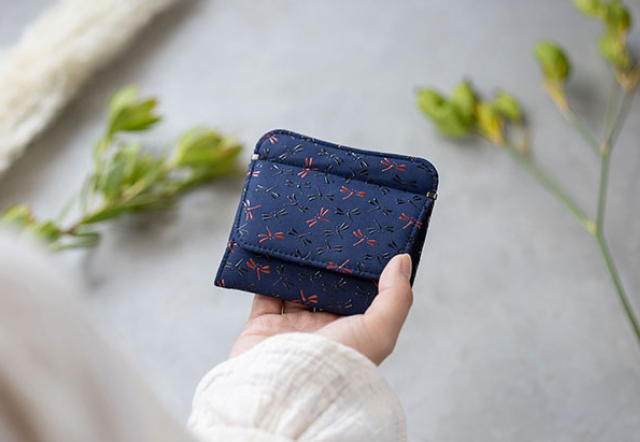From Samurai's accessories to fashionable items - The 400 years old story of Inden est.1582

INDENYA
The history of INDEN dates back to the time of the Samurai, when durable, functional items were crafted for high ranking Samurai, who needed strong, yet light and flexible materials for their armor and accessories. Over time, Samurai and their rich history became interesting to people from in- and outside of Japan, who were inspired by their appearance. INDEN responded to this by creating modern items with their traditional techniques. They started with accessories and styles that fit kimono looks, such as hand fan covers and traditional hand string bags. Nowadays, they have a wide line-up of wallters, purses, bags, card holders and small accessories to fit any style and purpose. They continue to work according their authenthic production styles and values, which have been kept a company secret for over 12 generations.
The current, 13th generation is dedicated to share his family's legacy and show people the beauty and unique craftsmansip of INDEN, that has been developed for over 400 years in their home town of Yamanashi, Japan. They today bring a unique sophistication and modernization to each exquisite and long-lasting Japanese product, and are recognized all over the world.
Leather x Lacquer

Deerskin
Light, tough, soft, this material becomes smoother to the touch the more it is used, and rewards the user with an enduring natural texture.

Lacquer (Urushi)
Urushi lacquer is known for the unique sheen it gets over time, the more you use it. It also is a material that symbolizes Japanese aesthetics.

INDEN Patterns are inspired by nature, as well as traditional kimono patterns. The color combination change over time - so be sure to get your hands on your favorite ones before they're gone!
INDEN Facts
Name Origins
When Japan was actively trading with European merchants in the 17th century, one of the popular imports was a type of decorated leather item called “Indeya leather,” which was made in India. It is said that the name “INDEN” originated as an abbreviation of “Indo denrai,” meaning, “shipped from India” in Japanese.
The beginnings of Koshu Inden
In the Edo period (1603-1868), founding father Uehara Yushichi developed a technique for creating lacquer patterns on deerskin. This is said to have been the beginning of Koshu INDEN Drawstring pouches, tobacco holders and other items made using this technique quickly became favorites among the upper class and fashionable people of the day.
Closely guarded family secret
Of the various INDEN craft houses that existed in the late Edo period (1603-1868), INDEN-YA was the only one to survive the test of time. This was because its techniques were only transmitted through oral instruction to successive generations of family heads who inherited the Yushichi name. This family secret has now been disclosed to spread the INDEN technique far and wide.
Tradition and Innovation
In 1987, Koshu INDEN was designated a traditional craft product by the Ministry of Economy, Trade and Industry. Through preservation of tradition and collaboration with various luxury brands and artists, INDEN-YA passionately continues to pursue innovative craftsmanship.











